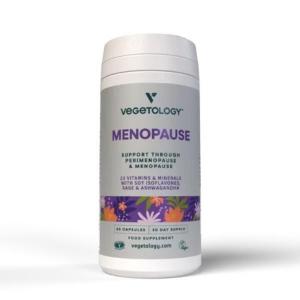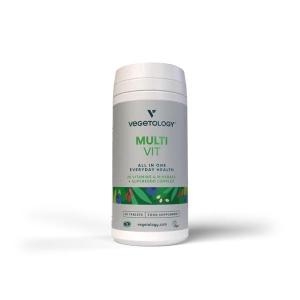
Try the chelated form of magnesium for better sleep and energy

What is the Chelated Form and Why Does It Matter When Choosing Supplements?
In the dietary supplements market, more and more people are interested in a healthy lifestyle and want the best for their bodies. However, terms appear in the offerings of shops and online stores that can be confusing for many. One such term is the chelated form of minerals—such as magnesium or zinc. But what does the term chelated actually mean, and why is it important to pay attention to it when selecting supplements?
What Does “Chelated Form” Mean?
The word “chelate” comes from the Greek “chele,” meaning claw or pincer. In chemistry, this term refers to a compound where a metal ion (e.g., magnesium or zinc) is bonded to an organic molecule via two or more bonds—thus “held” as if in pincers. This bond is stable and very natural for the human body.
From a practical standpoint, this means that a mineral in chelated form is better absorbed and biologically more available than in other forms—such as oxide or sulfate. This allows the body to utilize a larger amount of the active substance, even in smaller doses.
Why is Chelated Form of Magnesium or Zinc Better?
When we talk about magnesium in chelated form, it usually refers to a compound of magnesium with an amino acid—most commonly glycine. This form is known as magnesium bisglycinate. For zinc, you might encounter zinc bisglycinate or other compounds where zinc is bonded to organic acids or amino acids.
Compared to inorganic forms (e.g., magnesium oxide or zinc sulfate), which have low absorbability and can burden the digestive tract, chelated forms behave like regular amino acids. The body recognizes them, does not “shy away” from their chemical structure, and absorbs them much more effectively from the intestine into the bloodstream.
Several studies, including those published in professional journals like the Journal of the American College of Nutrition, confirm that chelated forms of minerals have higher bioavailability than their inorganic counterparts.
Try our natural products
What Does the Difference Look Like in Practice?
Let’s imagine two common scenarios.
In the first, a person buys a readily available supplement with magnesium in oxide form. The packaging shows a high dose—say, 400 mg of magnesium—but upon consumption, they experience bloating, diarrhea, and minimal effect. The body absorbs only about 4% of this form.
In the second case, they choose a supplement with magnesium in chelated form, specifically in bisglycinate form. Although the packaging indicates a lower dose—such as 150 mg—the body utilizes significantly more, often up to 80%. Without unpleasant digestive issues and with visible effects: improved sleep, reduced muscle cramps, increased calmness, and balance.
The same principle applies to zinc in chelated form. Among other things, it supports the immune system, wound healing, healthy skin, and hormonal balance. Thanks to zinc bisglycinate, its usability significantly increases, and the body does not have to “laboriously” convert it as with less available forms.
When Does Chelated Form Make the Most Sense?
It’s not just a marketing label. The chelated form of a mineral has real benefits, especially when:
- you have problems with digestion or nutrient absorption,
- you use supplements regularly and require long-term effectiveness without side effects,
- you need minerals in the most utilizable form—especially during increased physical or mental stress,
- you are a vegetarian or vegan with limited intake of certain nutrients from foods.
Especially seniors or athletes, whose bodies have increased needs for magnesium and zinc, will appreciate not having to supply large doses to the body, but only those genuinely usable.
Be Mindful of Labels
At first glance, choosing the right supplement can be confusing. Manufacturers often provide only general terms like “contains magnesium” or “zinc 25 mg.” More important than the dose itself is the form in which the mineral is present in the product.
Look for names like magnesium bisglycinate, zinc bisglycinate, magnesium taurate, or malate—these are chelated forms that the body can absorb much better. For zinc, try picolinate or citrate; though not always pure chelates, they certainly work better than common oxides. If you find the word “oxide,” “sulfate,” or “chloride” on the label, be cautious. These forms are cheaper but often with lower efficacy and worse tolerance.
Natural Approach and Chelates
You might ask: if I eat healthily and focus on natural ingredients, do I even need chelated minerals? The answer is—yes and no. In an ideal world, we would receive everything from a balanced diet. However, modern agriculture and food processing have caused even healthy-looking foods to have lower mineral content than expected.
For example, magnesium used to be commonly found in whole grains, legumes, or leafy greens. Today, due to the removal of husks, long storage, and losses during cooking, we consume tens of percent less magnesium than generations before us.
The chelated form of minerals thus acts as a bridge between a natural approach and modern science. It offers the body substances that it truly utilizes, without burdening it with synthetic fillers or non-absorbable components.
A Real-Life Example
Lucie, a 32-year-old graphic designer, started suffering from chronic fatigue, insomnia, and frequent headaches after the birth of her child. She tried medications and dietary changes, but relief didn’t come. It wasn’t until a visit to a nutrition therapist that she discovered she had a long-term deficiency of magnesium. After starting a supplement with magnesium in chelated form, she saw significant improvement within two weeks—better sleep, less tension, and overall more energy.
“I never would have believed that the form in which I take a vitamin or mineral could make such a difference,” she says today.
Quality First
When choosing supplements, it’s always good to focus not only on the mineral form but also on the presence of other components. Avoid products with artificial colors, sweeteners, or unnecessary fillers. A good supplement should be pure, transparent, and preferably vegan, without genetically modified components.
In e-shops focused on ecology and natural lifestyle—like Ferwer—you’ll find products that not only contain chelated forms of magnesium or zinc but also respect sustainability, ethics, and health principles.
In today’s world, surrounded by a plethora of information and marketing tricks, it’s sometimes hard to discern what is genuinely effective and what is just a well-packaged promise. The chelated form, however, stands out as one of those rare connections between scientific advancement and real health benefits.
As the famous physician and philosopher Paracelsus said: “It is not the substance itself that heals, but the way in which it is received.”




